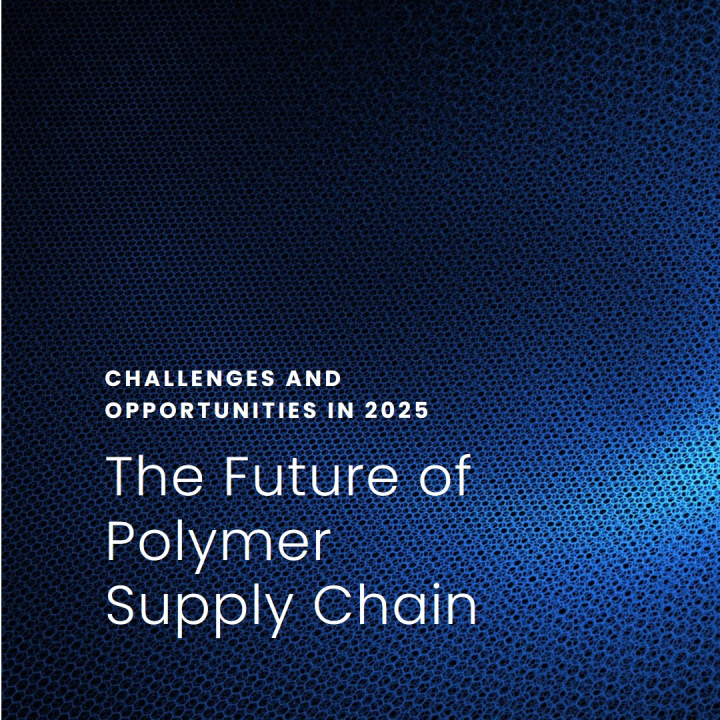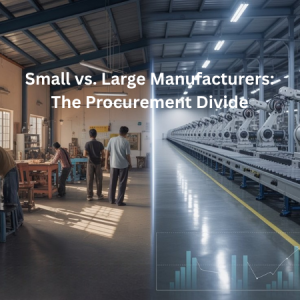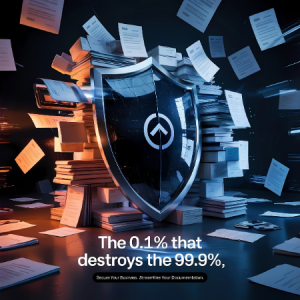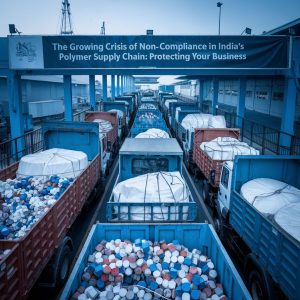

The Polymer Supply Chain in 2025: Challenges and Opportunities
Published on: January 16, 2025
Author: Team JITSY
Are you ready for the dynamic shifts ahead in the polymer industry? With the global polymer market projected to hit an impressive $35.61 billion by 2031, the industry is poised for substantial growth. However, the road to success comes with its own set of challenges, from fluctuating raw material prices to tighter environmental regulations. Yet, for supply chain managers and industry professionals, these challenges also give rise to opportunities, such as the rise of bio-based polymers and advancements in recycling technologies.
How can your business stay ahead of the curve? Here’s an in-depth exploration of the polymer supply chain in the next two years—covering both hurdles and opportunities—along with strategies to ensure you continue thriving in this evolving landscape.
The State of the Global Polymer Market
The polymer market is expanding rapidly, with global production expected to surpass 500 million metric tons by 2025, driven by industries such as packaging, automotive, construction, and electronics. Emerging economies in the Asia-Pacific region, particularly India, are at the forefront of this growth, thanks to rapid urbanization and industrialization.
But while the numbers are exciting, the expanding demand also introduces a layer of complexity to supply chains, making it critical for businesses to address underlying challenges strategically.
Key Challenges Impacting the Polymer Supply Chain
1. Fluctuating Raw Material Prices
Raw material volatility is an ongoing challenge for the polymer industry. The cost of feedstocks such as crude oil, a major component in traditional polymer production, saw a rise of over 50% in 2021. Such unpredictability directly affects production costs, profit margins, and pricing strategies, leaving manufacturers scrambling to stabilize costs.
Solution: Implement advanced demand forecasting tools to monitor market trends and plan raw material procurement more strategically. Partnering with diverse suppliers can also reduce dependency on a single feedstock source.
2. Supply Chain Disruptions
The COVID-19 pandemic exposed significant weaknesses in global supply chains, causing transportation delays and material shortages. Logistics costs increased by 30% in some regions during peak disruption periods. With supply chains inching toward recovery, new challenges like geopolitics and labor shortages continue to add pressure.
Solution: Adopt supply chain digitization tools for real-time visibility to identify bottlenecks and act swiftly. Building localized supply chains in key markets like Asia-Pacific can also mitigate some risks.
3. Environmental Regulations
With over 60 countries imposing bans or restrictions on single-use plastics, the demand for traditional polymers is facing increasing scrutiny. While creating a push for sustainable alternatives, this regulatory landscape is disrupting existing product portfolios.
Solution: Proactively integrate sustainability into your business model by diversifying into eco-friendly, bio-based polymers and adopting circular economy practices like recycling.
Opportunities Shaping the Future of Polymers
Amidst these challenges lie remarkable opportunities for businesses ready to innovate and pivot.
1. The Rise of Bio-Based Polymers
Consumers want sustainability, and brands are listening. The bio-based polymer market is forecasted to grow at a staggering 12% CAGR, reaching $30 billion by 2025. Offering biodegradable options opens doors to eco-conscious consumers while meeting regulatory requirements.
2. Advancements in Recycling Technologies
Recycling remains a major avenue for improving sustainability. With advancements in polymer recycling technologies, material recovery rates are improving. The global recycling market for plastics is expected to reach $37 billion by 2026, creating opportunities for businesses to upcycle materials and reduce waste.
3. Customisation for Emerging Industries
The electric vehicle (EV) sector is a prime example of a fast-growing industry with highly specific material needs. Specialized lightweight polymers tailored for EV applications can help reduce weight, enhance performance, and meet the growing demand for energy-efficient materials. EV sales alone are projected to hit 26 million units globally by 2030, signaling an immense opportunity for polymer suppliers.
Our Approach to Solving Your Polymer Challenges
At JITSY, we understand how pressing these challenges are and how crucial it is to harness the opportunities ahead. That’s why we’ve developed tailored solutions to help supply chain managers and businesses thrive in this evolving landscape.
- Predictive Analytics: To tackle raw material price volatility, we provide real-time analytics to help you make smarter, data-driven procurement decisions.
- Sustainability Integration: We connect you to suppliers offering bio-based polymers and advanced recycling technologies, ensuring your products meet global environmental standards.
- Customized Material Solutions: From EVs to renewable energy applications, we help you access polymers engineered for highly specific use cases.
With our extensive network, cutting-edge analytics tools, and a commitment to sustainability, we’re here to make navigating the polymer supply chain simpler and more effective.
Join the Leaders Shaping Tomorrow’s Industry
The polymer industry is at a pivotal moment. Challenges like environmental regulations and supply chain disruptions demand innovative thinking and swift action. But for those willing to adapt, there’s immense room for growth and profitability.
Now’s the time to ensure your business stays ahead, ready to tackle challenges and seize opportunities in this competitive market.
Take the first step today. Schedule a consultation with our experts to explore tailored solutions that fit your business needs perfectly. Together, let's transform challenges into opportunities for success in 2025 and beyond.
Schedule Your Free Consultation Now. Fill Signup Form Today !
Latest Articles

Small vs. Large Manufacturers: The Procurement Divide That’s Holding India Back
India cannot afford to grow unequally. If the vision is to become a global manufacturing powerhouse, we must ensure that procurement works for everyone – not just the big players.

The Great Procurement Divide: Why Your Best Engineers Make Your Worst Buyers
“He knows everything about polymers—so let him handle the purchase too.”

Copy-Paste vs. Innovation
Is playing it safe actually the riskiest strategy? The uncomfortable truth about innovation avoidance in Indian manufacturing

The Credit Cycle Shift: Why 30-Day Payments Are Winning Hearts (and Wallets)
The Credit Cycle Shift: Why 30-Day Payments Are Winning Hearts (and Wallets)

The Great Inventory Debate
Just-in-Time vs. Just-in-Case After COVID

The 0.1% That Destroys the 99.9%: Why Documentation in B2B Trade Isn’t Optional Anymore
“Sir, you have my word.”
“It’s done. Dispatch tomorrow.”

The Growing Crisis of Non-Compliance in India’s Polymer Supply Chain: Protecting Your Business
The Hidden Danger in Your Raw Material Procurement. Manufacturing sectors face increased scrutiny…

Complete Documentation Isn’t Optional – It’s Critical
Six months later, you receive a notice from the GST department that sends a chill down your spine…

5 Ways to Optimise Your Polymer Supply Chain
Explore five proven approaches that can transform your polymer supply chain…
Experience seamless supply chain solutions with JITSY. Your trusted partner for Just in Time Supply needs. Optimise operations today!
Quick Links
Contact
- connect@jitsy.in
- +91 9711562699
-
Salcon Rasvilas
Saket, New Delhi
India






